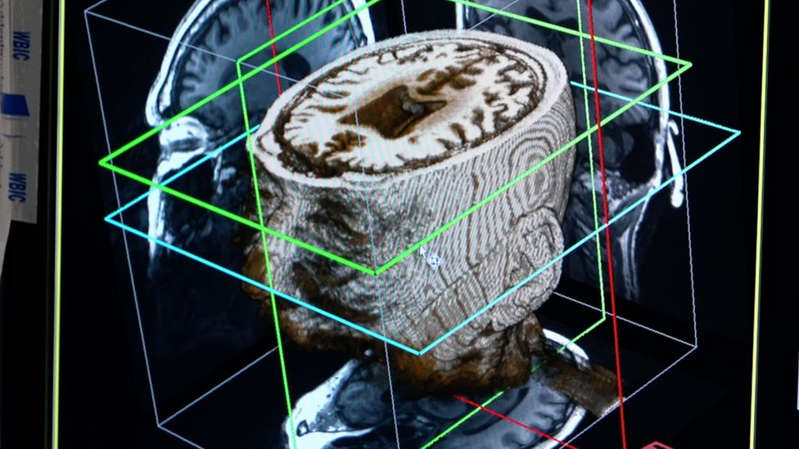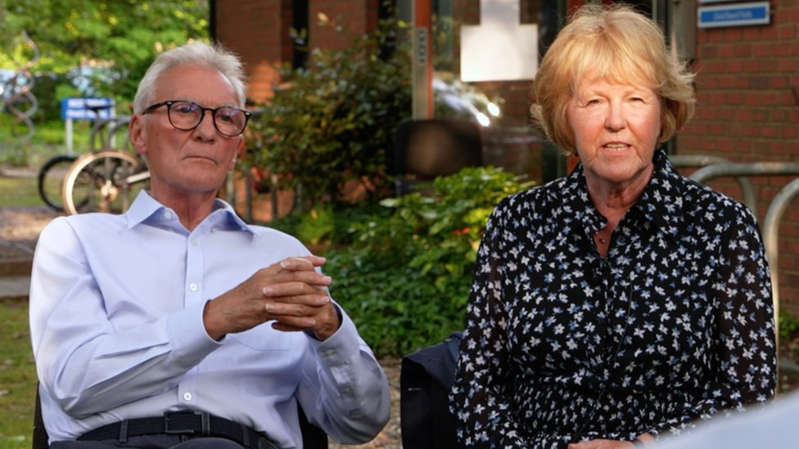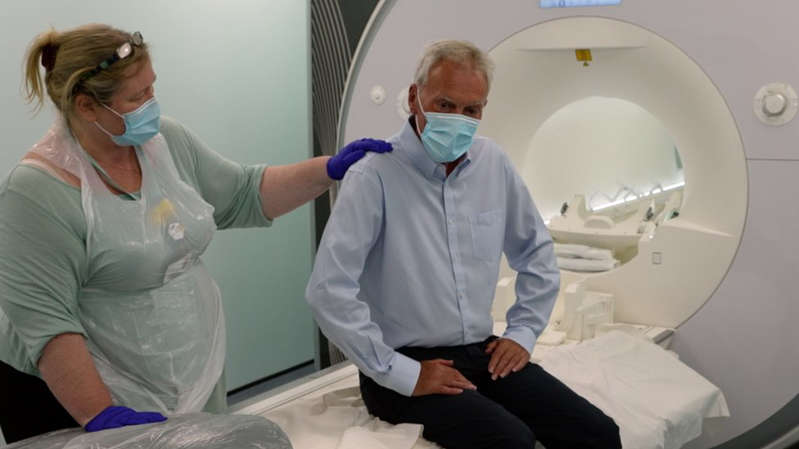
AI can find features in brain scans that even the most experienced neurologists can't see
Scientists are testing an artificial intelligence system that is believed to be able to diagnose dementia after just one brain scan.
The system will also be able to predict how stable the patient's condition will be and whether he needs urgent help.
Currently, multiple scans and tests may be required to diagnose dementia.
The researchers argue that early diagnosis with the new system could dramatically improve treatment outcomes.
Identify patterns
“If you intervene early, the treatment works earlier, slows the progression of the disease, and at the same time helps avoid more damage,” says Zoe Curzi, professor of cognitive computational neuroscience at the Alan Turing Institute and professor of experimental psychology at the University of Cambridge. that the symptoms of dementia will appear much later, or never at all. “
Consultant neurologist Timothy Rittman of the University of Cambridge in an interview with the BBC called the AI system “a fantastic achievement”: more information about the probable course of the disease, help plan your life – all this is extremely important. “
- Nine rules to dramatically reduce your risk of dementia
- Recognizing dementia and other diseases by the eyes – why is it real
Professor Curzi's system compares the results of brain scans of patients with those of thousands of people with dementia and their corresponding medical records.
The algorithm can identify patterns in scanned images that even experienced neurologists cannot see and compare them with patient outcomes in its database.
In preclinical trials, the system was able to diagnose dementia years before symptoms appeared, even if there were no clear signs of damage on a brain scan.
About 500 people are expected to participate in the first clinical trials at Addenbrook Hospital in Cambridge and other clinics across the country. Scientists will test whether the system works in a clinical setting alongside traditional methods of diagnosing dementia.
The results will be sent to doctors who, if necessary, will advise on a course of treatment.
Memory problems
75-year-old Denis Clark is one of the first participants in clinical trials. Five years ago, he retired as head of a meat company.
Last year, his wife Penelope noticed that he sometimes had memory problems. And now they are worried that Denis is developing dementia.
- Does alcohol prevent dementia?
Clark tries to describe his symptoms, but his wife intervenes and says that it is difficult for him to explain what is happening to him.
The couple are worried that they will have to sell their house to pay for Denis's care. Of course, Penelope is glad that they will not have to wait long for the diagnosis and the likely scenarios for the development of the disease in their spouse.

Denis may need several expensive brain scans to determine if he has dementia
“Now we can plan our expenses,” she says. “It will be clear if we can still go on vacation a couple of times before the situation worsens.”
Relentless growth
According to the National Health Service, more than 850 thousand people in the UK suffer from dementia, and in the age group after 65 years, one in 14 suffers from it, and after 80 – one in six.
Charitable organization Alzheimer's Research UK said it was projected in 2014 that one million people will be diagnosed with dementia by 2025, and that number will double by 2050.
- Will new research help cope with Alzheimer's?
Organization spokesperson Dr. Laura Phipps says the new system will add confidence to doctors when examining images and diagnosing patients: “Today, doctors have to rely on interpreting brain scans and cognitive tests to diagnose dementia, often over a fairly long period of time. those developed by Professor Curzi will give doctors more confidence in interpreting scan results, leading to a more accurate diagnosis for patients. “
“We hope that in the future, this approach will not only improve current diagnostic methods, but also open the door to new approaches to detecting diseases that cause dementia at a much earlier stage.”
Early diagnosis
Curzi is also leading a project funded by Alzheimer's Research UK that combines digital data from apps and wearables, including sleep, fine motor skills and brain activity, to predict diseases like Alzheimer's up to 20 years ahead.
Funds for this project – about $ 2 million – were provided by the Alzheimer's Disease Drug Discovery Foundation (ADDF), a US-based venture capital charity.
- Scientists find out how deep sleep can prevent the onset of Alzheimer's disease
The funded Early Detection of Neurodegenerative Diseases (EDoN) Program is part of a broader initiative that challenges the global research community to develop new diagnostic technologies for Alzheimer's disease and associated dementia.

It usually takes multiple brain scans to diagnose dementia
EDoN optimizes the collection, integration and analysis of vast amounts of clinical and health data to identify behavioral metrics that can detect early stages of disease.
This data will be used to build machine learning models to identify features common to various neurodegenerative diseases, including Alzheimer's.
- British scientists are inspired by the “miracle cure” for dementia
- British scientists: football can lead to dementia
As a result, the project intends to create an inexpensive and easy-to-use digital toolkit – probably a collection of applications, wearable or mobile devices and software.
The funding will enable the EDoN team to digitally collect data from over 600 people currently involved in two studies in Australia. Volunteers will be asked to use a dedicated sensor to measure sleep and brain activity, an activity tracker to record heart rate and physical activity, and a smartphone app to measure cognition, speech and fine motor control.
The data obtained will be compared with clinical data. The researchers hope in this way to isolate the digital indicators that are most closely associated with biological change.
“Accurate and low-cost tools for early detection of neurodegenerative diseases will provide a unique insight into the underlying mechanisms of the disease, improve clinical diagnosis and enable early clinical interventions when the chances of success are much higher,” says Professor Curzi.

